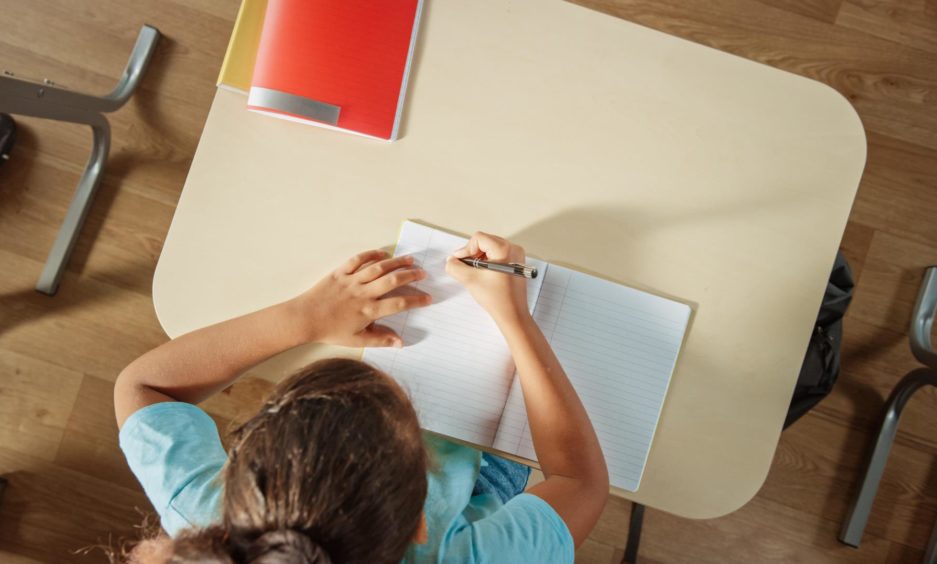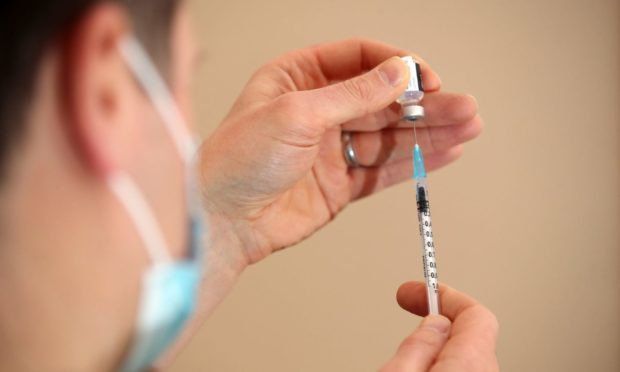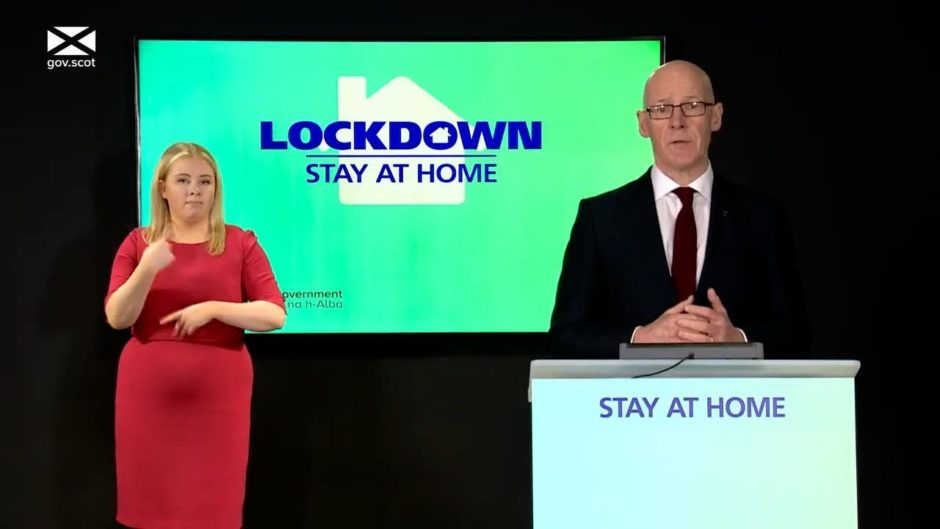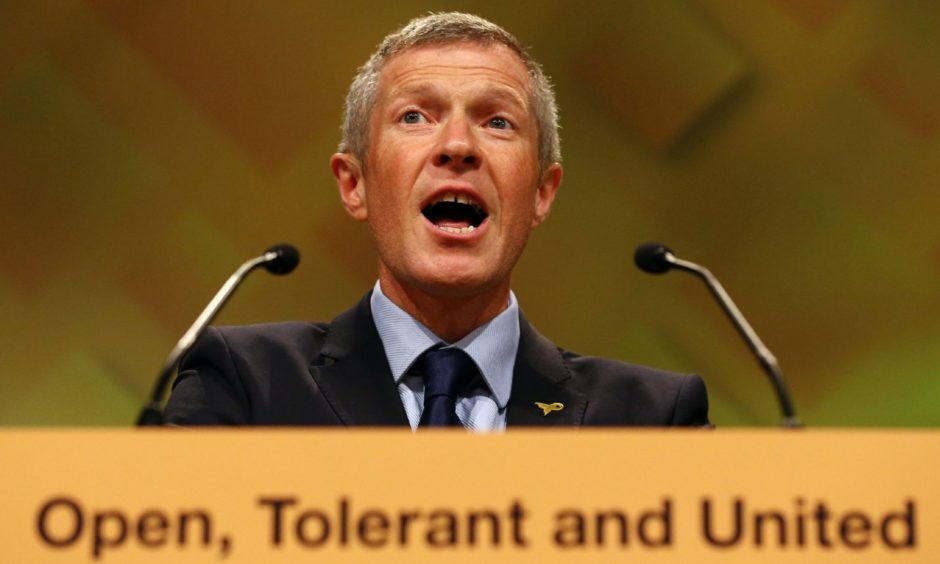Almost all older care home residents in Scotland have received their first dose of coronavirus vaccine, says the Scottish Government.
Deputy first minister John Swinney led the press briefing on Friday, where he announced 99% of older residents had been inoculated.
Mr Swinney insisted the country is still on course to hit its target of having all over 70s, in residential care or not, given their initial vaccine by the middle of this month.
More than 750,000 first doses of vaccine have been administered in Scotland, with 48,165 having been given between Thursday and Friday morning – double last week’s number.
Despite the “positive” numbers, Mr Swinney added the Scottish Government is still looking for ways to improve the speed of the rollout, and acknowledged the poor weather forecast this weekend could have an impact, although every precaution is being taken, including the prioritising of gritting roads outside vaccine centres and clearing snow quickly, he said.
However, an additional 61 coronavirus-related deaths were recorded between Thursday and Friday.
Fife test centres
As part of efforts to contain the virus, a new asymptomatic test centre is to open in Cowdenbeath.
Attendees will be given lateral flow tests and do not need to present with symptoms before going.
If the test returns positive, then a second, more sensitive PCR test will be administered.
Attendees could have their initial results back within 45 minutes, Mr Swinney said.
Eight sites have been approved so far, Mr Swinney added, with a further 11 expected to follow later on Friday.
The Maxwell Centre site will be open from 8am to 8pm, Monday to Friday, and 11am to 5pm, Saturday and Sunday, for people living in Cowdenbeath, Lochgelly and Lumphinnans.
North East Fife MSP Willie Rennie said the Scottish Government is still months behind when it comes testing, however.
He said: “I am pleased to see the government is finally listening to what I have been saying for several months.
“More than 1.2 million tests have gone unused since Christmas so I welcome the decision to finally act and expand asymptomatic testing to groups who could benefit from it and communities around the country where the virus is prevalent.
“The new centres will allow the discovery of asymptomatic carriers and decrease the spread of the virus by unknowing carriers.
“They will give people a new sense of relief as well as providing extra protection to our community and its most vulnerable members.
“However, ministerial hesitation has meant that our community testing is months behind other countries.
“We were told we would see this programme ramp up from early January. The testing capacity must now be rapidly scaled up if these tests are to catch as many asymptomatic cases as possible and drive the virus out.”
Schools
Mr Swinney said he did not yet have a timetable for when most children will return to school.
Nursery children and those in P1-P3 will return to class from Monday February 22 – along with a limited return of some senior school pupils who need to do practical work as part of their qualifications.

But when asked to comment on reports that it could be mid-April before most children over seven who are not studying for qualifications return, Mr Swinney said: “We do not have a timetable for the restoration of face-to face-learning.
“We want to do it as quickly as is possible, and we will do that informed by the high-quality clinical advice that is available to the government.”
Perthshire coach
Mr Swinney gave details on a Scottish Ambulance Service modified passenger coach, which has been travelling through Perthshire and Tayside to reach rural patients.
The bus, which has been donated to NHS Tayside by Lochs and Glens Holidays, has delivered the vaccine to over 70s and clinically vulnerable people who are unable to leave the house.
Scottish Ambulance Service medical director Jim Ward said: “We have already vaccinated more than 5,000 of our own staff, community first responders and students, which has been a fantastic effort by everyone involved.
“The bus is essentially a mobile vaccination clinic that can access remote and rural Scotland, providing a sheltered place where people can come and get vaccinated in a safe environment by trained healthcare professionals.
“The car will allow people who cannot leave their homes to be vaccinated.
“We have received great feedback from the people who have been vaccinated on the bus and also by those who have been visited at their homes.
“We are very grateful to Lochs and Glens Holidays for providing the bus and look forward to working alongside other health boards and Scottish Government colleagues in developing the initiative and rolling it out to other areas of Scotland.”
Dr Daniel Chandler, associate director of public health at NHS Tayside, said: “The vaccination programme is progressing well in Tayside with over 60,000 people already vaccinated across Dundee, Angus and Perth and Kinross.
“This mobile service provided by the Scottish Ambulance Service will help provide extra capacity to support our GPs and community vaccination teams as we move into the next phase of the programme.”
Mr Swinney said: “The feedback that we have had from people who have had the vaccine in this way has been hugely positive.
“We are working with the Scottish Ambulance Service and other health boards to see if this model can be rolled out in other remote and rural areas of the country.”
A number of rural community vaccine centres in Scotland have been closed, as staff are reconsolidated to mass sites like the P&J Live in Aberdeen.
First Minister Nicola Sturgeon warned earlier this week a balance between speed and local accessibility would have to be reached, with it more likely tipping toward the mass vaccine centres.


